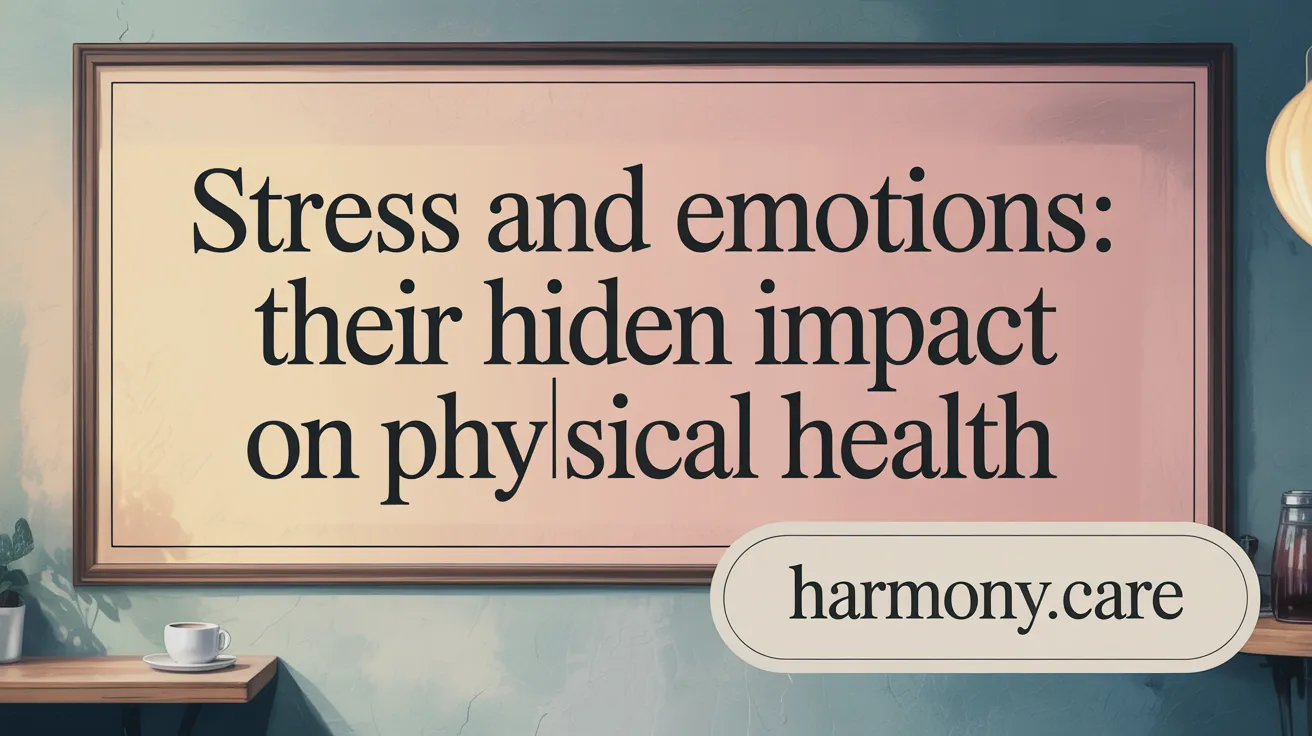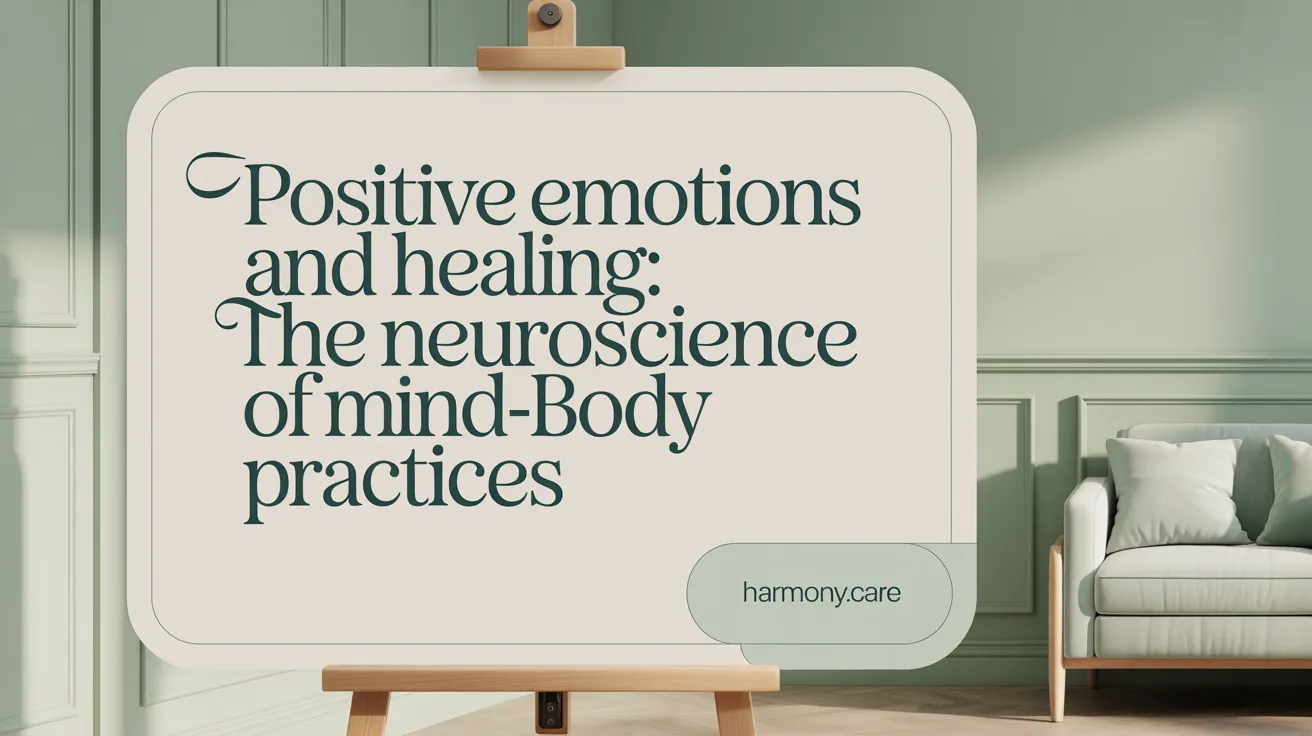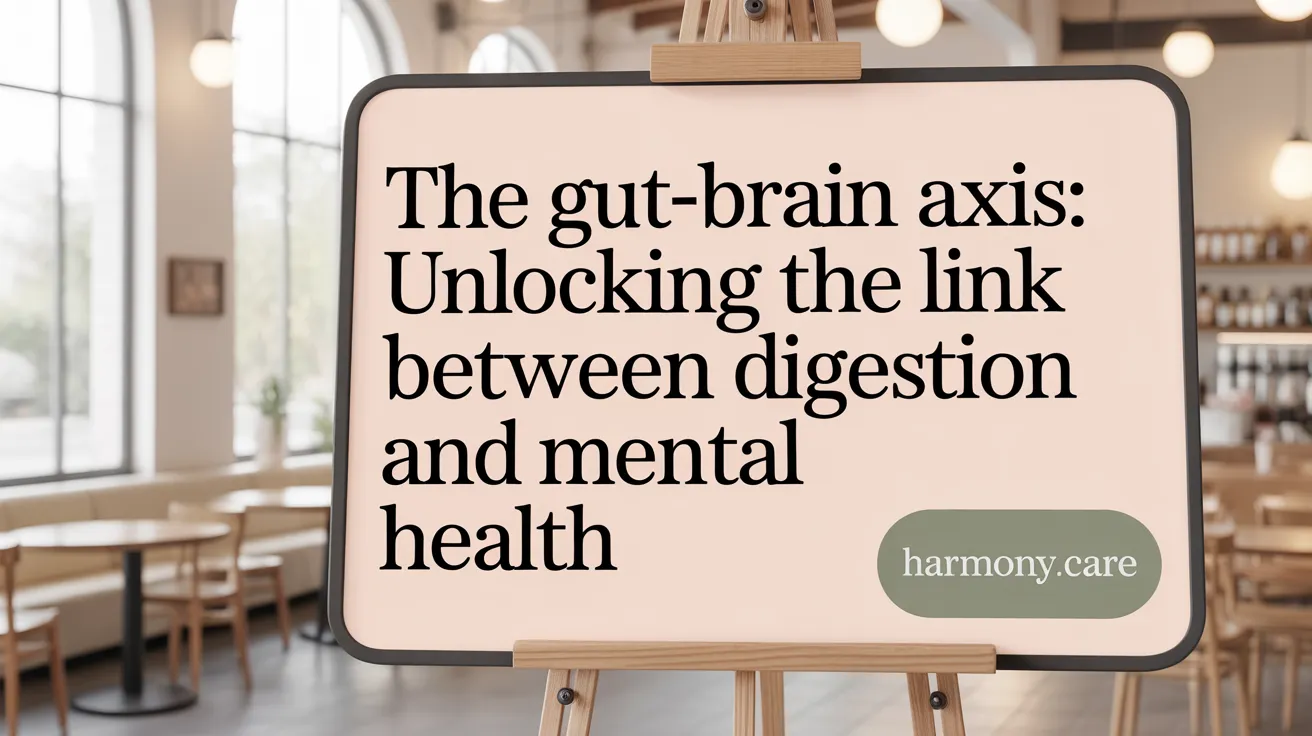Introduction to the Mind-Body Connection
Definition of the Mind-Body Connection
The mind-body connection describes how our thoughts, emotions, and attitudes influence physical health, and conversely, how physical health impacts mental and emotional well-being. This relationship is dynamic and bidirectional, showing that mental states can trigger physiological changes, while physical conditions can affect psychological health.
Historical Perspectives
Ancient cultures recognized this vital connection long before modern science. Greek philosophers such as Plato and Aristotle explored how the mind and body interact. Similarly, Traditional Chinese Medicine (TCM) embraced the concept of 'Qi'—a vital life energy flowing through the body—highlighting the integration between mental and physical health.
Modern Scientific Validation
Contemporary research in neuroscience, psychology, and psychoneuroimmunology confirms and expands these traditional views. Scientific studies show that brain regions controlling movement and cognitive functions are intertwined with networks managing involuntary bodily functions like heart rate and blood pressure. This interplay forms a neurological basis for the mind-body relationship.
Psychological and Physiological Interactions
Mental states such as chronic stress activate the body's 'fight-or-flight' response, releasing hormones like cortisol and adrenaline. While designed for short-term protection, prolonged stress can weaken immunity, increase inflammation, and contribute to conditions like heart disease. Conversely, positive emotions and stress-reduction techniques—such as meditation and mindfulness—can enhance immune function and promote healing.
Understanding this intricate mind-body relationship provides a foundation for holistic healthcare approaches focusing on natural, personalized strategies that support both mental and physical wellness.
Neurological Foundations of the Mind-Body Connection

How are the brain and body neurologically interconnected?
Recent neuroscience research has uncovered profound links between the brain's control of physical movement and cognitive as well as autonomic functions. Brain regions traditionally recognized for managing movement are tightly integrated with networks responsible for thinking, planning, and regulating involuntary bodily processes like heartbeat and blood pressure (mind-body connection in brain, mind-body connection in brain).
The Somato-Cognitive Action Network (SCAN)
Scientists have identified a specialized neural network called the Somato-Cognitive Action Network (SCAN) neuroscience. This network connects areas involved in motor control with those regulating cognitive tasks and physiological functions. It bridges the gap between physical action and mental processes, offering a tangible neurological foundation for the mind-body connection observed in many holistic health practices (mind-body connection in brain, Somato-Cognitive Action Network (SCAN) neuroscience).
Implications of Brain-Body Network Integration
The discovery of SCAN helps explain why activities that engage both body and mind—such as meditation, exercise, and breathwork—have potent effects on mental health and physiological regulation. This interconnected circuitry may underpin observed benefits like reduced anxiety, improved mood, and better autonomic balance (Mind–Body Connection Overview, Mind-body connection).
Developmental Aspects of Brain-Body Integration
Intriguingly, this neural network is not present at birth; it develops during the first year of life and reaches near maturity by around age nine. This developmental trajectory highlights the brain's evolutionary adaptation for sophisticated cognitive and bodily integration essential for complex behaviors (mind-body connection in brain.
Neurobiological Explanation for Mind-Body Practices
The SCAN network provides a scientific explanation for how mind-body exercises can influence brain plasticity and promote emotional resilience. By simultaneously engaging motor and cognitive control centers, these practices reinforce the brain’s ability to regulate stress responses and support overall well-being (neurobiological effects of mind–body exercise, mind-body connection for better health.
These findings affirm that the mind-body relationship has a clear neurological basis, validating holistic approaches that nurture both mental and physical health (understanding the mind-body connection, Mind–Body Connection Overview).
The Impact of Stress and Emotions on Physical Health

How does stress affect physical health?
Chronic stress triggers the body's fight-or-flight response, releasing stress hormones like cortisol and adrenaline. While helpful in the short term, prolonged elevation of these hormones can impair immune function and promote inflammation, increasing vulnerability to diseases such as heart disease, diabetes, and arthritis.
Fight-or-flight response and stress hormones
This response mobilizes energy and sharpens alertness during perceived threats. However, prolonged activation due to chronic stress causes cortisol to suppress immune cells, disrupt hormone balance, and elevate blood pressure, which are detrimental to overall health as shown in mind-body connection research.
Effects of chronic stress on immune function and inflammation
Sustained stress reduces the immune system's ability to fight infections by altering cytokine production and immune cell activity. This dysregulation contributes to chronic inflammation, which is linked to multiple health conditions including autoimmune diseases and metabolic disorders, as explored in psychoneuroimmunology studies.
Manifestation of stress through physical and emotional symptoms
Individuals under chronic stress often experience physical symptoms such as headaches, muscle tension, gastrointestinal discomfort, and sleep disturbances. Emotionally, stress may lead to anxiety, depression, mood instability, and difficulty concentrating, aspects detailed in holistic mental health approaches.
Link between mental health and chronic illnesses
Scientific findings in psychoneuroimmunology emphasize that mental states influence immune regulation. Poor mental health is associated with increased risks of cardiovascular disease, metabolic syndromes like diabetes, and chronic pain conditions, demonstrating the close bidirectional mind-body interplay.
Understanding and addressing the integrated effects of stress and emotions on physical health through holistic and evidence-based approaches can help restore balance and promote long-term wellness.
Positive Mental States and Healing: The Science Behind Mind-Body Practices

What scientific evidence supports the benefits of mind-body practices?
Clinical trials and neuroscience research in mind-body connection consistently validate the positive impacts of mind-body practices such as meditation, mindfulness, yoga, acupuncture, and neurofeedback. These practices are shown to reduce stress hormones like cortisol, thereby lessening inflammation and bolstering immune responses (Mind-body connection and immune system.
How do meditation, mindfulness, and yoga reduce stress and support immunity?
Meditation and mindfulness promote the "relaxation response," a physiological mechanism that counters the stress-induced activation of the fight-or-flight system. This response lowers cortisol levels and heart rate, helping to soothe the nervous system and decrease inflammation (Stress hormones cortisol and health impact. Yoga uniquely combines mindful movement, breathing exercises, and meditation, which collectively reduce muscle tension and improve sleep—factors essential for immune health (yoga therapy benefits).
How do mind-body exercises influence brain plasticity and connectivity?
Brain imaging studies reveal that mind-body exercises enhance neural connectivity and plasticity, particularly in brain networks responsible for self-awareness, emotional regulation, and cognitive control. These changes include increased gray matter volume and improved synchronization within key brain regions, facilitating better stress management and mental resilience (mind-body connection in brain.
What is the impact of positive emotions on longevity and disease prevention?
Positivity and emotional well-being support robust immune function, reduce chronic inflammation, and lower risks of heart disease and other stress-related illnesses. Genuine positive emotions, such as gratitude and hope, contribute to longer life expectancy by promoting healthier physiological balance (Mind-body health connection).
What evidence supports holistic therapies like acupuncture and neurofeedback?
Acupuncture has been demonstrated to relieve pain, reduce anxiety, and improve sleep quality by stimulating energy flow and releasing natural painkillers (Acupuncture for chronic pain). Neurofeedback training supports balanced brain activity, helping individuals regulate stress and emotional responses effectively (mind-body connection. Both therapies complement mind-body practices in achieving mental and physical harmony, fostering overall healing and wellness (Mind-body therapies).
Holistic and Integrative Approaches to Mind-Body Wellness

Overview of integrative medicine strategies addressing mental, physical, and emotional health
Integrative medicine embraces a whole-person approach, recognizing that mental, physical, and emotional health are deeply interconnected. Strategies focus on combining conventional medical treatments with integrative medicine holistic health strategies to restore balance and optimize well-being. This approach tailors care to each individual's history, lifestyle, and environment, ensuring personalized treatment that nurtures both mind and body (Mind-body medicine and self-regulation).
Roles of acupuncture, massage therapy, music therapy, and nutrition counseling
Acupuncture aids relaxation and pain relief by stimulating energy flow and releasing natural chemicals, helping reduce anxiety and physical discomfort. Massage therapy relaxes muscles, stimulates endorphin release, and improves circulation, promoting mental calmness and physical healing.
Music therapy supports heart rate regulation, enhances self-expression, and stimulates brain activity, which improves mood and cognitive function. Nutrition counseling addresses the gut-brain axis, reducing inflammation and supporting immune health through balanced diets rich in omega-3s, antioxidants, and essential nutrients (mind-body connection and nutrition.
Personalized treatments including naturopathy and psychiatric medication management
Naturopathic medicine emphasizes identifying root causes of distress, using natural remedies like herbal supplements, mindfulness practices, and lifestyle modifications to promote emotional balance and physical health. Psychiatric medication management, when combined with holistic therapies, provides comprehensive symptom relief and supports mind-body harmony.
The gut-brain axis and nutritional psychiatry
The gut-brain axis reflects the two-way communication between digestive health and mental well-being. Nutritional psychiatry leverages this link by recommending diets rich in nutrients that support brain function and regulate mood, thus strengthening the mind-body connection (mind-body connection and nutrition.
Community and social support in enhancing mind-body balance
Community programs and social support systems play a vital role in reinforcing emotional resilience and overall health. Shared mind-body practices such as group yoga or meditation foster connection and motivation, helping individuals sustain healthy habits and improve well-being (Mind-Body Connection Practices Supporting Healthy Living).
Holistic therapies such as acupuncture, massage, yoga, music therapy, and integrative nutrition address both mental and physical symptoms by promoting relaxation, reducing inflammation, and supporting immune function (Mind-body therapies. Naturopathic medicine prioritizes root causes of stress and employs natural treatments alongside mind-body practices (Naturopathic mental wellness). Combined with social engagement and personalized care, these integrative approaches nurture full-spectrum health and mind-body balance (Holistic Health Overview).
The Gut-Brain Connection and Its Role in Mind-Body Health

How does the gut-brain connection influence mind-body health?
The gut-brain connection is a crucial pathway that enables constant communication between the central nervous system (brain and spinal cord) and the gastrointestinal tract. This bidirectional relationship means that the state of your gut health can directly influence your emotions, mood, and cognitive function.
A major player in this connection is the gut microbiome—trillions of bacteria living in the digestive system. These microbes produce important neurotransmitters such as serotonin and gamma-aminobutyric acid (GABA), which play significant roles in mood regulation and brain function. When the balance of these gut microbes is disrupted, it may lead to mental health challenges like anxiety and depression.
Emotional stress is not only felt mentally but can also express itself through digestive symptoms. Chronic stress triggers the release of stress hormones that affect gut motility, gut lining integrity, and microbial balance, potentially causing gastrointestinal discomfort or disorders. This is closely related to the effects of stress hormones and the impact of cortisol.
Nutrition directly supports the gut-brain axis. Diets rich in omega-3 fatty acids, antioxidants, and fiber promote a healthy gut environment and contribute to better brain function and emotional well-being. Conversely, poor nutrition can fuel inflammation and weaken both physical and mental health. The role of nutrition and mental health and balanced diets for cognitive function support this understanding.
By nurturing the gut-brain connection through mindful eating, stress management, and gut-friendly practices, individuals can strengthen this essential mind-body connection, enhancing overall wellness.
Practical Mind-Body Techniques and Lifestyle for Enhancing Well-Being

What practical methods can strengthen the mind-body connection?
Mindfulness meditation, deep breathing, progressive muscle relaxation, and guided imagery are powerful tools that help regulate emotions and reduce stress hormones like cortisol. These methods calm the nervous system, improving mental clarity and resilience as supported by psychoneuroimmunology research and Mind-body medicine and self-regulation.
How do mind-body exercises contribute to well-being?
Exercises such as Tai Chi, Qigong, and yoga combine gentle movements, breath control, and mental focus. They improve flexibility, balance, and body awareness while fostering relaxation and emotional balance. Regular practice supports brain plasticity and enhances immune function, aligning with insights from Somato-Cognitive Action Network (SCAN) neuroscience.
What daily habits support stress reduction and overall health?
A nutrient-rich diet filled with omega-3 fatty acids, antioxidants, and vitamins supports cognitive function and mood stability. Regular physical activity releases mood-boosting endorphins and improves circulation. Prioritizing quality sleep allows for brain repair and emotional regulation, which are essential for a strong mind-body connection. These habits are also emphasized in holistic health benefits for mental wellness and Integrative Medicine holistic health strategies.
What role does positive psychology play in mind-body wellness?
Practicing gratitude, optimism, and positive thinking encourages healthier behaviors and reduces the impact of stress. Genuine positive emotions have been linked to better heart health, stronger immunity, and increased longevity as described in positive psychology and mind-body health research, supported by findings on mental health's role in physical wellness.
How do community and nature-based practices enhance holistic health?
Spending time in nature lowers cortisol levels and promotes creativity and calmness. Engaging with supportive social groups fosters emotional well-being and reduces feelings of isolation. Combining these elements nurtures a balanced mind, body, and spirit, promoting lifelong wellness as detailed in holistic health resources and mind-body-spirit connection, highlighting the importance of grounding techniques and emotional regulation.
